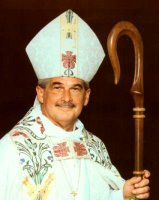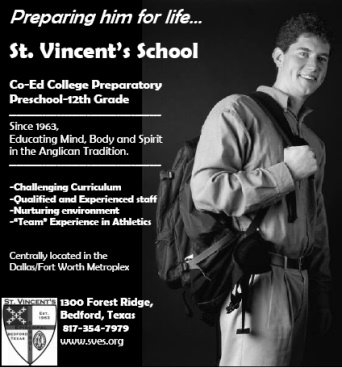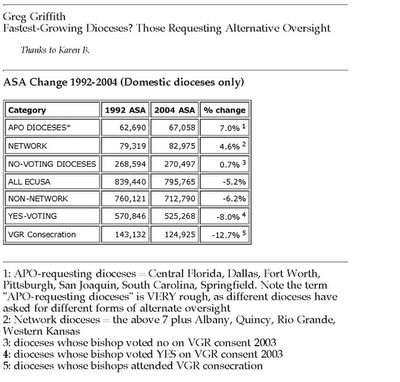
It was extremely hot and humid in Ephesus in June of 431 A.D--not an ideal time of year to hold a church convention. But the emperor had called a council in the great port city any way. Bishops were arriving in Ephesus from all over the Christian world to participate in the third Ecumenical Council of the Church. The fiery tempers of these churchmen matched the climate of the Mediterranean metropolis. People were itching for a fight and major theological issues were at stake. Among the items on the agenda that created the most heated controversy was a matter of semantics—was it appropriate to call the Virgin Mary
Theotokos, Greek for “God-bearer”, or not? Battle lines had been drawn across the Roman Empire over whether or not this honorific title--“God-bearer”--was appropriate for the young woman who had given birth to the Savior of the world in that stable at Bethlehem. The debate raged so fiercely that imperial troops had to be called in to keep the pro-
Theotokos and anti-
Theotokos bishops from attacking one another! Such a great commotion over what to call a simple Jewish girl from Nazareth!
Of course, the Blessed Virgin Mary would never have wanted to be the center of so much attention. Nowhere in Holy Scripture does Mary vaunt herself or thrust herself into the limelight. In fact, she is clearly uncomfortable when others call attention to the special grace God conferred upon her in making her the mother of the Christ. When the archangel Gabriel greets her at Nazareth with the title “Favored One”, Mary is “greatly troubled at this saying.” In humility she sees herself as nothing more than “the handmaid of the Lord,” or to put it more plainly, “the Lord’s servant girl.”
Later, when St. Elizabeth expresses wonder at receiving a visit from the “mother of her Lord” and prophesies in the power of the Spirit that Mary is “blessed among women,” the Virgin responds by turning attention away from herself and onto “God her Savior,” who “has regarded the low estate of His handmaiden” and “done great things” for her. Even when Mary acknowledges in her great hymn of praise that “all generations” will in fact call her “blessed,” she takes no credit for herself. “It is the God who ‘exalts those of low degree’ who deserves the praise,” Mother Mary tells us across the centuries. “I’m not the important one here. Keep the focus on what matters!”
And yet that debate in Ephesus over whether or not the Virgin Mary may be called
Theotokos did matter very much. For the title God-bearer, though it does highly honor our Lady, is ultimately a statement about the nature of Christ. The Fathers of the Church who defended the apostolic faith at Ephesus knew this well. For if the Virgin Mary was not the bearer of God Incarnate, fully human and fully divine, then we have not been saved. Only the divine Giver of the law Himself could redeem those who were under the law. Only the Lord of Life could have trampled Death under his feet and kicked down the gates of Hell. If Mary did not give birth to God Himself in the flesh, then all of us who worship Jesus her Son are idolaters, and we are lost in our trespasses. Thanks be to God, that is not so! God our Savior has indeed come to His people and set them free. The babe of Bethlehem, Emmanuel, God-with-us, has won the victory. To Him be honor and glory, forever and ever! Amen.
Yet it is also right that you and I should come together tonight to honor St. Mary the Virgin for her role in the saving work of God. After all, the human nature of Christ that suffered on the cross for our redemption and triumphed over the grave was a gift freely given to Him by His mother. Ponder for a moment the astonishing words of faithful obedience Mary uttered in response to the archangel’s message that fateful day in Nazareth: “Let it be to me according to thy word.” With those words the infinite gulf between creature and Creator was annihilated in an instant. Time and eternity merged. God and Man actually became One within the Virgin’s womb. By God’s gracious will, Mary was able to give her Son the genuine humanity that would bear our sins and open the door to eternal life.
This truth about Christ’s
humanity is also reflected in the Virgin’s title,
Theotokos. For Mary gave birth to her Son in the same wonderous way all of us were born. Many other religions have stories about gods who appear on the earth and walk about in the semblance of men. Christianity is unique in insisting that our God—the only God there is, in truth—actually became one of us. The Incarnation was not some divine parlor trick. God the Son took on a real human nature in the Virgin’s womb--flesh and bone, mind and soul. Christ is one with us in His humanity because He is His mother’s Son. Our God has known a mother’s love. And the love Chirst experienced craddled in Mary’s loving arms is of a piece with the love He showed Himself at Calvary.
As we come to the communion rail tonight to receive the precious Body and Blood of our Lord in the Blessed Sacrament of the altar, let us take a moment to remember the awesome gift of His own life that Christ pours out for us here is a gift His beloved Mother Mary first gave to Him. And let us be thankful.
Holy Mary,
Theotokos, pray for us sinners now and at the hour of our death. In the name of the Father, and of the Son, and of the Holy Spirit. Amen.











